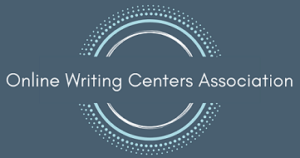OWCA 2025 Professional Development Symposium Schedule
All presentations will occur according to Central Time.
| 9:50 – 10:00 am | Opening Remarks |
| 10:00 – 11:00 am | Creating Internal Learning Opportunities
Presenter: Andrea Hernandez Holm (University of Arizona) |
| 11:00 – 12:00 pm | Sustaining Graduate Writing Communities: Peer-Led Development and the Infrastructure of Care
Presenters: Christine Sharp, Sarah Ceja, Betty Ramirez, Alicia Wright, Felicitas Hartung (University of California San Diego) |
| 12:00 – 1:00 pm | Breaking Bread: Jumpstarting Regional Writing Center Communities
Presenters: Tom McNamara, Jennifer Staben Melissa Pavlik, Jasmine Castillo, Kyle Boisvert, Allyson Howard, Vainis Aleksa, Erin Herrmann, Kate Goranson, Claudia Nieves (Presenters represent Lewis University, DePaul University, University of Illinois Chicago, and North Park University) |
| 1:00 – 1:30 pm | Lunch Break
* Zoom room will remain open for anyone interested in socializing or networking* |
| 1:30 – 2:00 pm | Improving Cultural Understanding and Intercultural Communication Through Faculty and Tutor Self-Paced Training with Achievement Levels
Presenters: Kathleen Turner Ledgerwood, Sarah Kennedy (Embry-Riddle Aeronautical University) |
| 2:00 – 3:00 pm | The Pen vs. the Algorithm: Training Tutors to Respond and Work with AI
Presenters: Seher Vora (San Jose State University) |
| 3:00 – 4:00 pm | Writing Circles for Contingent Faculty and Staff
Presenters: Nicole Kenley, Chrissy Sharp and Betty Ramirez (University of California San Diego) |
| 4:00 – 5:30 pm | Developing a Community of Inquiry and Research in the Writing Center
Presenters: Charitianne Williams, Deanna Thompson, Megan O’Neil, James Nacionales, Ephraim Liang, Maaheen Puthawala, Brenda Arrez, Yusrah Younus (University of Illinois Chicago) |

